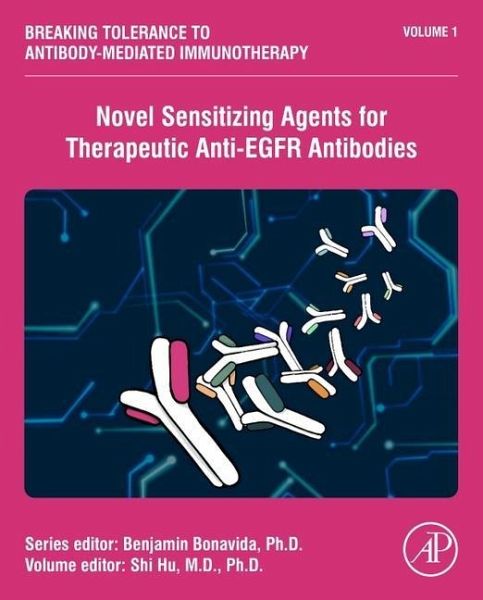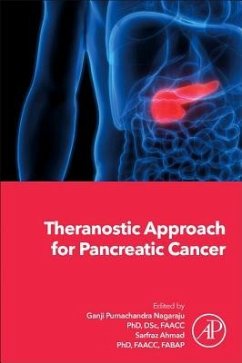
Novel Sensitizing Agents for Therapeutic Anti-Egfr Antibodies
Volume 1
Herausgegeben: Hu, Shi

PAYBACK Punkte
59 °P sammeln!
Novel Sensitizing Agents for Therapeutic Anti-EGFR Antibodies presents a description of the sensitizers used to overcome resistance to anti-EGFR targeted antibody therapies in cancer, including novel engineered antibody drugs and other sensitizers. The book gives insights into the landscape of anti-EGFR based cancer treatments, the challenges of targeted therapy, and a glimpse into the future of antibody therapy. It offers pertinent science information on strategies used for the rational design and discovery of novel sensitizing agents, and in addition, translational studies involving pre-clin...
Novel Sensitizing Agents for Therapeutic Anti-EGFR Antibodies presents a description of the sensitizers used to overcome resistance to anti-EGFR targeted antibody therapies in cancer, including novel engineered antibody drugs and other sensitizers. The book gives insights into the landscape of anti-EGFR based cancer treatments, the challenges of targeted therapy, and a glimpse into the future of antibody therapy. It offers pertinent science information on strategies used for the rational design and discovery of novel sensitizing agents, and in addition, translational studies involving pre-clinical and clinical design. This book is an indispensable resource for cancer researchers, medicinal chemists and other biomedical scientists.
Finally, the book covers basic science strategies used in drug discovery and preclinical evaluation focused on EGFR blockage resistance, as well as clinical trial methodology, including clinical pharmacokinetics and imaging to address issues of efficacy evaluation of the new anticancer sensitizers for anti-EGFR drug resistance.
Finally, the book covers basic science strategies used in drug discovery and preclinical evaluation focused on EGFR blockage resistance, as well as clinical trial methodology, including clinical pharmacokinetics and imaging to address issues of efficacy evaluation of the new anticancer sensitizers for anti-EGFR drug resistance.













